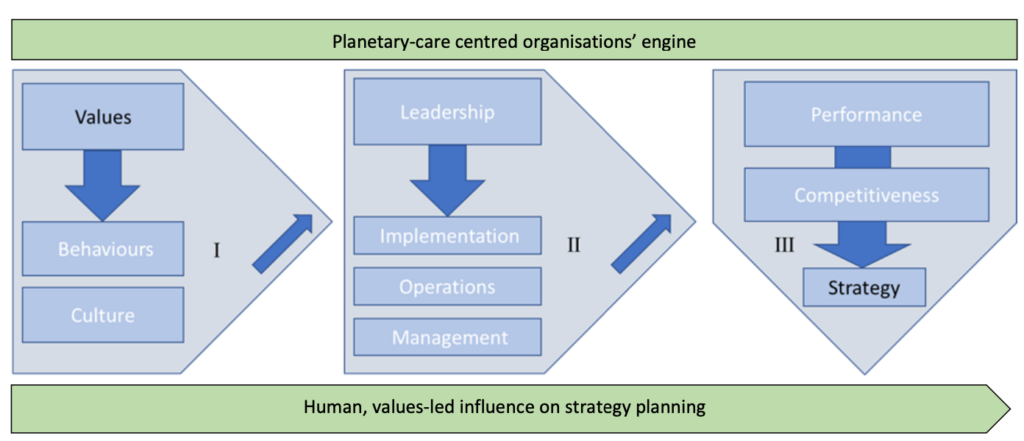HOW TO OPERATIONALISE?
Sustainabilism™ values all five capital pillar assets, tangibles and intangibles. Such multifaceted system needs human sense-based capacity to capture, analyse, hear, care, be visionary and able to innovate out of the box.
Some recommendations are given here, nevertheless, this is not an exhaustive list and just some first directions. Always welcome to contact for sharing expertise on such complex transformations and integration of a values-based approach to management, leadership and operations. To start with:
A. On top of ESG reporting standards, there is a need for inclusion of all sustainability intangible assets value. Such values need to be part of the valuation and calculation of the total asset value of an organisation. This will possibly enlarge the definition of IAS 38, IFRS and all international reporting standards. Equally important for risk management is the inclusivity of all sustainability intangibles related risks. These risks need to be valued and included in the profit and loss statements and balance sheet (real costs of manufacturing or servicing against planetary and economic survival). Redefining economic value by taking collective responsibility over universal intelligence and the inclusion of all sustainability capital assets, (tangible or intangible). This will evolve capitalism upwards sustainabilism™.
In case all such assets are all embedded in economic business operations (clearly opposite of slavery behaviours and culture) a human-centred care engine will generate optimum human performance and competitive advantages.
Academic research at Cambridge University supported Wouter Savrij Droste by putting in business practice his model on how practically values play a crucial role in the strategy planning process” (2017). Values-based operations impacting strategy thinking and therefore potentially enlarging economic principles into evolutive universal intelligence economic models and systems.

Savrij Droste, W. (2017) How a values-led management approach influences an organisation’s strategy. Unpublished Mst dissertation. University of Cambridge.
B. Besides, in case reading these pages makes you think: “this is ridiculous far away from my reality”? A mindset shift is crucial for understanding the importance of such universal intelligence and planetary survival. How to reach such mindset? This could be a long road, starting with daily meditation and consciously reconnecting with yourself, all your senses, other people’s senses and especially nature.
Being frequently connected with nature and yourself (meditation) will be crucial for the journey of obtaining an universal intelligence state of mind. Such state of mind will open the capability to care for others, future generations and fostering planetary survival.
C. Crucial for such transformation is a values-sense-based approach to management and leadership in an organisation. For such approach individual and collective conscious state of minds and values need to be aligned on multiple levels through the organisation. The energetic drivers – values and behaviours – which measure motivation and drives actions and behaviours will be based on beliefs and values which boosts human performance (Barrett, 2006) in case these four conditions are met:
personal alignment – between the individual values or beliefs and their actions and behaviours
values alignment – between the individual and group values
mission alignment – between the individual’s sense of purpose, mission or drivers and the group’s purpose or mission.
structural alignment – between group values and beliefs expressed through their actions and behaviours codified in the collective rules, laws, processes and governance.
What matters most is including your ideas and your care on what sustainability intangibles are and how you experienced taking responsibility integrating them in business. Please share your sustainability intangibles experience for creating together the system’s transformation. It is about collective sharing, learning, grass-root, building transparency and collective trust.
Have any questions?
